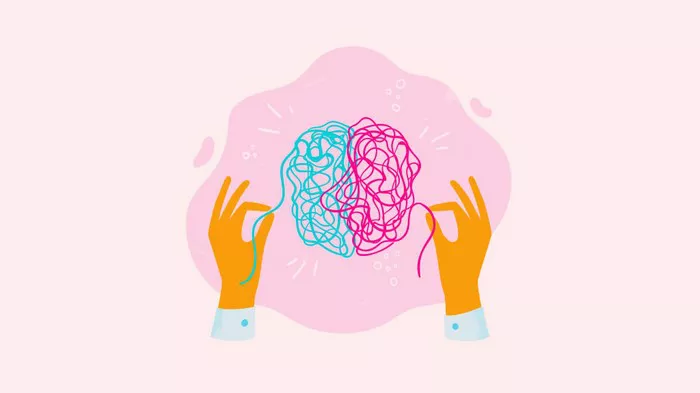Situational Awareness (SA) is a concept often associated with fields such as aviation, military operations, and emergency services where the ability to assess, understand, and predict situational elements in the environment is critical. However, SA’s application extends beyond these fields, playing a crucial role in mental health. This article explores the importance of situational awareness in the context of mental health, its impact, and strategies to enhance it for better psychological resilience and overall well-being.
Defining Situational Awareness
Situational Awareness in Mental Health: In the context of mental health, situational awareness involves being aware of one’s internal states, external environment, and the interaction between the two. It encompasses the ability to perceive environmental elements, comprehend their meaning, and project their future status.
Importance of SA in Mental Health
Recognizing the internal and external cues related to mental health states can significantly impact a person’s ability to manage and respond to psychological stressors effectively. Increased situational awareness in mental health helps individuals recognize the onset of mental health symptoms, understand triggers in their environment, and take proactive measures to manage their condition.
Components of Situational Awareness in Mental Health
Perception of the Elements in the Environment: This involves recognizing the immediate physical and social environment, including stressors, support systems, and potential hazards.
Comprehension of the Current Situation: This refers to understanding what the perceived information means, particularly how environmental and internal factors interact to affect mental well-being.
Projection of Future Status: This involves anticipating potential future challenges and changes in mental health based on current trends and dynamics.
The Role of SA in Managing Mental Health
Early Detection and Intervention: With good situational awareness, individuals can detect early signs of mental distress and seek intervention before the condition worsens. This can include recognizing triggers, understanding symptoms of stress or anxiety, and acknowledging when usual coping mechanisms are insufficient.
Stress Management: Effective SA helps individuals identify stressors and evaluate their impact on mental health. By understanding these dynamics, people can develop more effective strategies to manage stress, such as avoiding known triggers or preparing coping mechanisms in advance.
Enhancing Personal Safety: Situational awareness in mental health also involves recognizing situations where one’s mental health could compromise their safety or the safety of others. This is particularly crucial for individuals dealing with severe mental health challenges like psychosis or severe depressive episodes.
Strategies to Enhance Situational Awareness in Mental Health
Mindfulness and Meditation: Regular practice of mindfulness and meditation can enhance one’s ability to remain aware of their current mental state. These practices help in developing a heightened awareness of one’s thoughts, feelings, and bodily sensations in real-time.
Cognitive Behavioral Techniques: These techniques help in understanding the connections between thoughts, emotions, and behaviors, improving the ability to manage how situational factors influence mental health.
Regular Mental Health Assessments: Routine evaluations by mental health professionals can help individuals maintain an awareness of their mental health status and catch changes that might indicate a problem.
Journaling: Keeping a daily log of thoughts, feelings, and environmental factors can help individuals track changes over time and recognize patterns in their mental health.
Education and Training: Learning about mental health conditions, symptoms, and management strategies can enhance an individual’s ability to maintain situational awareness concerning their mental health.
Challenges to Maintaining SA in Mental Health
Stigma and Misunderstanding: Stigma surrounding mental health can hinder individuals from seeking help or acknowledging their condition, which severely impacts their situational awareness.
Emotional Overwhelm: During intense emotional responses or mental health crises, an individual’s capacity for situational awareness can be significantly reduced, making it difficult to make informed decisions or take protective actions.
Lack of Resources: Inadequate access to mental health services can prevent individuals from receiving the education and support necessary to develop effective situational awareness.
Implications for Therapy and Mental Health Practices
Integration in Therapeutic Practices: Mental health professionals can incorporate training in situational awareness into therapeutic practices. Techniques such as role-playing or scenario-based training can help individuals improve their SA.
Client Education: Educating clients about the importance of situational awareness and how to enhance it can be an integral part of therapy. This education can empower clients to take an active role in managing their mental health.
Use of Technology: Various technologies, including mobile apps and wearable devices, can help individuals monitor their mental health states and environmental stressors, enhancing situational awareness.
Conclusion
Situational awareness is a crucial skill in mental health management, providing individuals with the tools necessary to understand and navigate their psychological landscapes effectively. By fostering situational awareness, individuals can improve their ability to detect early signs of mental distress, engage in proactive management, and maintain better overall mental health. As awareness and understanding of SA in mental health grow, it is imperative that mental health professionals and individuals alike embrace and integrate these practices into everyday mental health care and management. This proactive approach can lead to more resilient individuals and a healthier society.
[inline_related_posts title=”You Might Be Interested In” title_align=”left” style=”list” number=”6″ align=”none” ids=”7755,7752,7746″ by=”categories” orderby=”rand” order=”DESC” hide_thumb=”no” thumb_right=”no” views=”no” date=”yes” grid_columns=”2″ post_type=”” tax=””]































